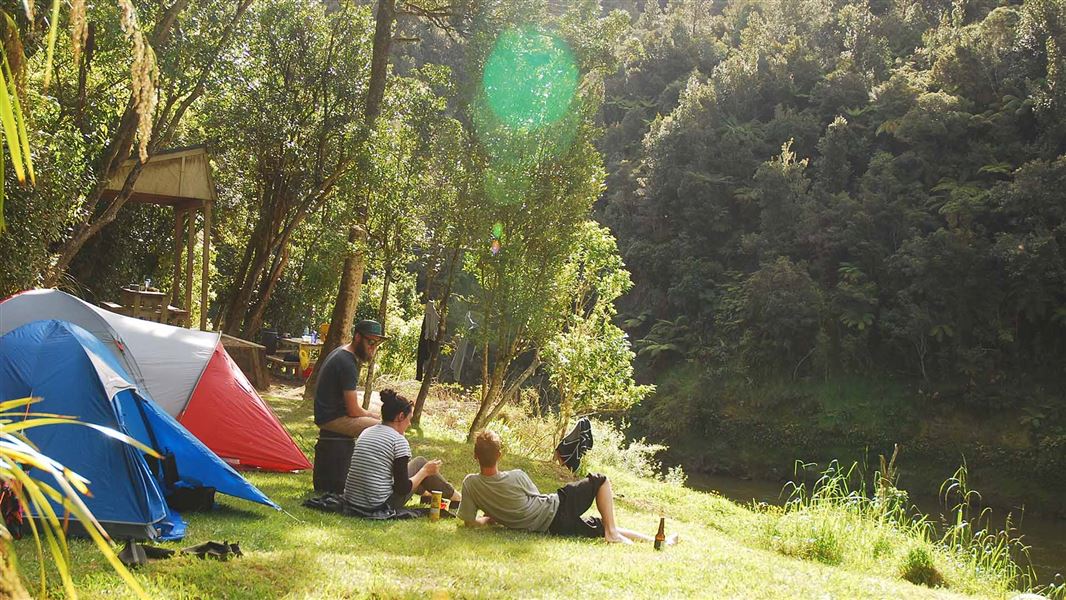Care for New Zealand, for now and for future generations, by following these simple steps each time you camp.
Before you go
Find a campsite and book ahead
DOC manages almost 300 campsites throughout New Zealand. Most of these campsites can be booked in advance to help you plan your holiday.
Pay your fees
Pay your fees to help keep campsites available in the future.
Pay your fees online for bookable campsites, or use the self-registration stand at non-bookable campsites.
Freedom camping
Only camp where permitted.
Freedom camping on public conservation land
Bringing your dog
Dogs are not permitted at DOC campsites unless the ‘dog with permit’ or ‘dog on a leash’ symbol is present. Check it’s okay to bring your dog before you go.
Dogs on conservation land: Rules and regulations.
Where dogs are allowed, it's important to keep your dog under control at all times. Even the most obedient dog has the potential to kill wildlife and most campsites are located in or near protected areas.
At the campsite
Campgrounds are social places but everyone needs some rest and relaxation. Respect the rights of others for quiet enjoyment of the outdoors.
Be tidy
Be tidy and always leave campsites clean. Take your rubbish with you if bins are not provided. Food scraps attract vermin.
Detergents, soap and toothpaste can harm aquatic and marine life. Use biodegradable products and wash in a container well away from the water.
Cooking and fires
Use a cooker or approved BBQ. At campsites, only light fires in designated fireplaces when there is no fire ban.
Lighting fires on public conservation land
Toilets
Always use toilets provided. There are toilets at all DOC campsites.
When camping elsewhere follow the guidance on DOC’s website: Poo in a loo – and be prepared for when there isn’t one.
Protect nature
Protect native plants and animals, and leave the land undisturbed.
Disease
Some DOC campsites are in areas where native species are vulnerable to disease.
Help prevent disease from spreading by following simple precautions, including cleaning gear before and after entering these areas. Look for notices at the campsites and DOC Visitor Centres for more details.
Invasive pests
Some special campsites are located on islands free of most of our invasive pest animals and plants. We rely on you to help keep them this way.
Inspect and clean your tent and other camping gear thoroughly before leaving home and between locations. Remove any mud (check the pegs and peg bag), sand, plant material, insects or animals such as mice or rats, Argentine ants and plague (rainbow) skinks – and don’t forget to check inside your tent.
It’s also important to check your clothing and footwear for weed seeds and soil before and after each trip.
If you’re taking a boat or kayak, check these too. DOC staff may make biosecurity checks of your footwear and gear when free.
Report sightings of pests on pest-free islands immediately to the DOC Hotline: 0800 362 468.
No unauthorised drones
A permit is required from DOC to use drones on public conservation land or near marine mammals.
When you leave
Dispose of waste responsibly
If there are no bins at the campsite, take your rubbish with you.
Motorhome or campervan users should always dispose of waste at official dumpstations. If you don't have a toilet onboard, camp where there are toilet facilities.
Clean your gear
Always thoroughly clean your equipment before and after trips to minimise spreading weeds and diseases.
